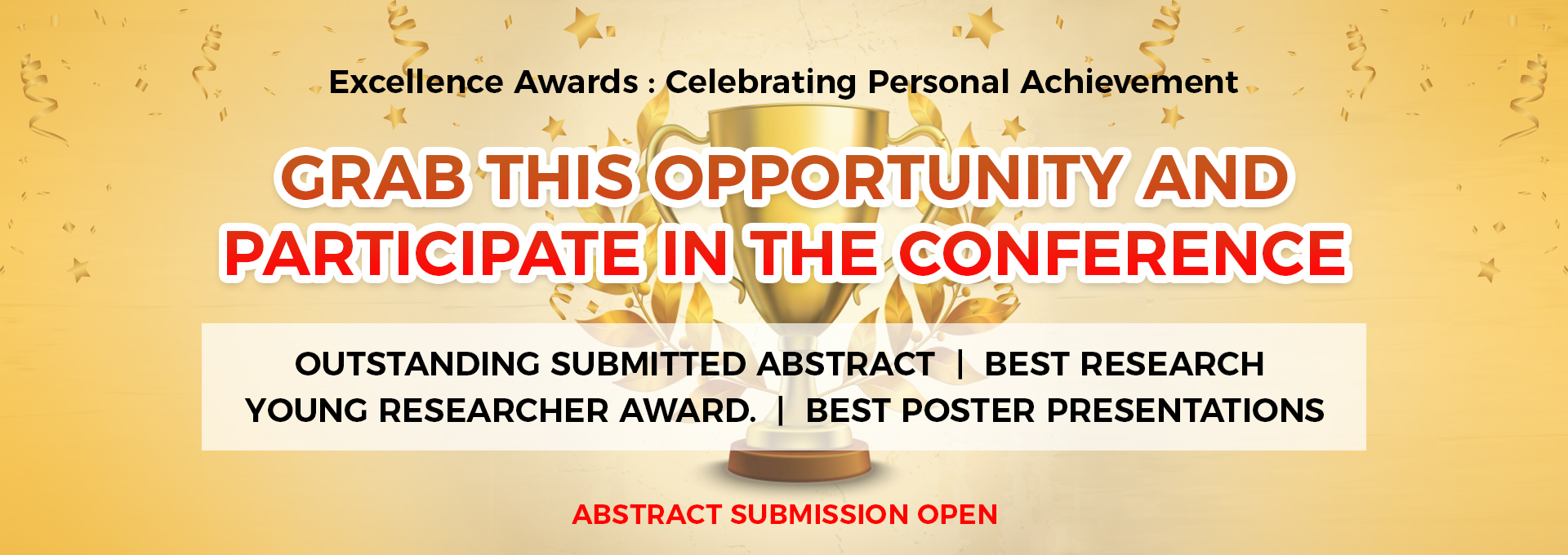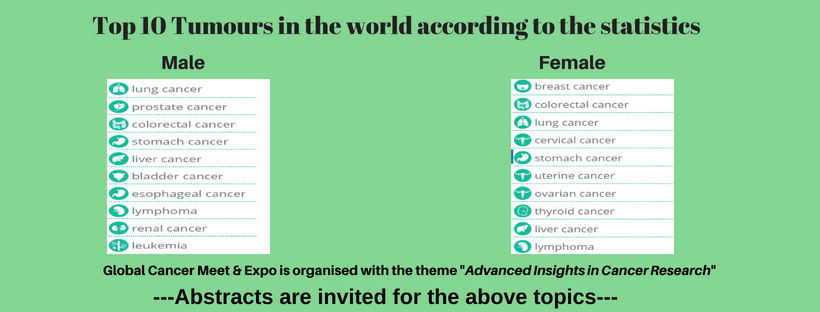Cancer Biomarkers
A cancer biomarker refers to a substance or process that is indicative of the presence of cancer in the body. A biomarker may be a molecule secreted by a tumor or a specific response of the body to the presence of cancer. Genetic, epigenetic, proteomic, glycomic, and imaging biomarkers can be used for cancer diagnosis, prognosis, and epidemiology. Cancer biomarkers, particular those associated with genetic mutations or epigenetic alterations, often offer a quantitative way to determine when individuals are predisposed to particular types of cancers. Cancer biomarkers can also be useful in establishing a specific diagnosis. This is particularly the case when there is a need to determine whether tumors are of primary or metastatic origin. Another use of biomarkers in cancer medicine is for disease prognosis, which take place after an individual has been diagnosed with cancer. Cancer biomarkerscan also offer value in predicting or monitoring cancer recurrence.
Cancer therapeutics
Cancer can be treated by surgery, chemotherapy, radiation therapy, hormonal therapy, targeted therapy (including immunotherapy such as monoclonal antibody therapy) and synthetic lethality. Complete removal of the cancer without damage to the rest of the body (that is, achieving cure with near-zero adverse effects) is the ideal goal of treatment and is often the goal in practice. Synthetic lethality arises when a combination of deficiencies in the expression of two or more genes leads to cell death, whereas a deficiency in only one of these genes does not. The deficiencies can arise through mutations, epigenetic alterations or inhibitors of one or both of the genes. The incidence of concurrent cancer during pregnancy has risen due to the increasing age of pregnant mothers and due to the incidental discovery of maternal tumors during prenatal ultrasound examinations. Cancer treatment needs to be selected to do least harm to both the woman and her embryo/fetus. In some cases a therapeutic abortion may be recommended.
Cancer Diagnostics
Cancer Diagnostic testing involves tests and procedures to confirm the presence of disease and identify the correct tumor type, location, extent and stage. Cancer Diagnostics plays an important role throughout your cancer treatment. Physical Examination, Laboratory tests, Biopsy, Imaging tests, Nuclear medicine scans, Endoscopy, Genetic tests are some of the diagnostic tests which are being carried out in the present world.
Cancer Immunology
Cancer immunology is a branch of immunology that studies interactions between the immune system and cancer cells. Cancer immune surveillance is considered to be an important host protection process to inhibit carcinogenesis and to maintain cellular homeostasis. In the interaction of host and tumor cells, three essential phases have been proposed: elimination, equilibrium and escape, which are designated the ‘three E’s'. The principles of cancer immunoediting have set the foundations for understanding the dual host-protective and tumor sculpting actions of immunity on cancer and establishing the basis for novel individualized cancer immunotherapies.
Clinical Research in Cancer
Clinical trials are the final links in the chains of knowledge and for determining the roles of therapeutic advances. Clinical trials are the final links in the chains of knowledge and for determining the roles of therapeutic advances. Traditional clinical trials are straightforward and purposely simple. Traditional clinical trials focus on large populations. Clinical trials keep getting bigger, making therapies more expensive and delaying their availability to patients.
Cancer stem cells and drug resistance
Cancer stem cells are cancer cells that possess characteristics associated with normal stem cells, specifically the ability to give rise to all cell types found in a particular cancer sample. CSCs are therefore tumorigenic (tumor-forming), perhaps in contrast to other non-tumorigenic cancer cells. The "mutation in stem cell niche populations during development" hypothesis claims that these developing stem populations are mutated and then reproduce so that the mutation is shared by many descendants. These daughter cells are much closer to becoming tumors and their numbers increase the chance of a cancerous mutation. De-differentiation of mutated cells may create stem cell-like characteristics, suggesting that any cell might become a cancer stem cell. The design of new drugs for targeting CSCs requires understanding the cellular mechanisms that regulate cell proliferation. The first advances in this area were made with hematopoietic stem cells (HSCs) and their transformed counterparts in leukemia, the disease for which the origin of CSCs is best understood.
Breast cancer
Breast cancer is cancer that develops from breast tissue. Signs of breast cancer may include a lump in the breast, a change in breast shape, dimpling of the skin, fluid coming from the nipple, or a red scaly patch of skin. Risk factors for developing breast cancer include being female, obesity, lack of physical exercise, drinking alcohol, hormone replacement therapy during menopause, ionizing radiation, early age at first menstruation, having children late or not at all, older age, and family history. Women may reduce their risk of breast cancer by maintaining a healthy weight, drinking less alcohol, being physically active and breastfeeding their children. High levels of physical activity reduce the risk of breast cancer. The management of breast cancer depends on various factors, including the stage of the cancer and the age of the patient. Increasingly aggressive treatments are employed in accordance with the poorer the patient's prognosis and the higher the risk of recurrence of the cancer following treatment. Prognosis is usually given for the probability of progression-free survival (PFS) or disease-free survival (DFS). These predictions are based on experience with breast cancer patients with similar classification. Treatments are being evaluated in trials. This includes individual drugs, combinations of drugs, and surgical and radiation techniques Investigations include new types of targeted therapy, cancer vaccines, oncolytic virotherapy, and immunotherapy.
Prostate Cancer
Prostate cancer is the development of cancer in the prostate, a gland in the male reproductive system. Most prostate cancers are slow growing; however, some grow relatively quickly. The cancer cells may spread from the prostate to other parts of the body, particularly the bones and lymph nodes. A complete understanding of the causes of prostate cancer remains elusive. The primary risk factors are obesity, age and family history. Prostate cancer is very uncommon in men younger than 45, but becomes more common with advancing age. The only test that can fully confirm the diagnosis of prostate cancer is a biopsy, the removal of small pieces of the prostate for microscopic examination. However, prior to a biopsy, less invasive testing can be conducted. Men who get regular exercise may have a slightly lower risk, especially vigorous activity and the risk of advanced prostate cancer. The first decision to be made in managing prostate cancer is whether treatment is needed. Prostate cancer, especially low-grade forms found in elderly men, often grows so slowly that no treatment is required. Treatment of aggressive prostate cancers may involve surgery (i.e. radical prostatectomy), radiation therapy including brachytherapy (prostate brachytherapy) and external beam radiation therapy, high-intensity focused ultrasound (HIFU), chemotherapy, oral chemotherapeutic drugs (Temozolomide/TMZ), cryosurgery, hormonal therapy, or some combination.
Lung Cancer
Lung cancer is a tumor growth characterized by uncontrolled cell growth in tissues of the lung. The major symptoms include breathing difficulties, pain in the chest area, coughing with blood, Loss of appetite, recurring infections. The common causes include Smoking, exposure to radon gas, asbestos, ionizing radiation, air pollution. Lung cancer may also occur due to genetic factors. Diagnosis of lung cancer includes various methods like Chest X-ray, Computed Tomography (CT), Biopsy, Magnetic Resonance Imaging (MRI), Positron Emission Tomography (PET). Lung cancers are classified in to adenocarcinoma, squamous carcinoma, small cell carcinoma and others. Primary lung cancers themselves most commonly metastasize to the brain, bones, liver and adrenal glands. The evaluation of non-small-cell lung carcinoma (NSCLC) staging uses the TNM classification. Smoking prevention and smoking cessation are effective ways of preventing the development of lung cancer. Treatment for lung cancer depends on the cancer's specific cell type, how far it has spread, and the person's performance status. Common treatments include palliative care, surgery, chemotherapy, and radiation therapy. Targeted therapy of lung cancer is growing in importance for advanced lung cancer.
Cancer prevention and Management
Reducing the risk of certain cancers may be possible through dietary and other lifestyle changes. Other lifestyle changes reduce the risk of several types of cancer. Early detection of cancerous or precancerous growths can save lives. People with cancer want to do everything they can to combat the disease, manage its symptoms, and cope with the side effects of treatment. Many turn to complementary health approaches.
Surgical Oncology and Radiology
Surgery is the oldest form of cancer treatment, and for most patients, part of the curative plan includes surgery. The most important part of the consultation with the surgeon is a complete history and physical exam. Surgery is used to diagnose stage and treat cancer, and certain cancer-related symptoms. Surgery plays an important role in the management of both early cancers as well as advanced cancers in combination with chemotherapy and radiotherapy.


